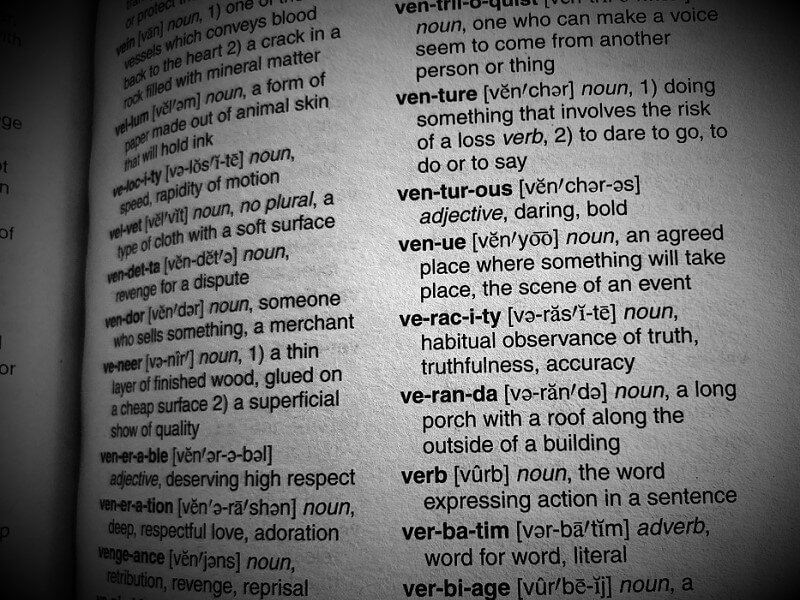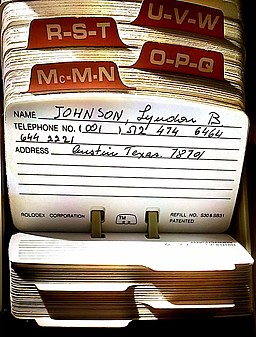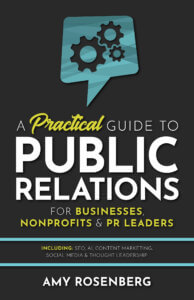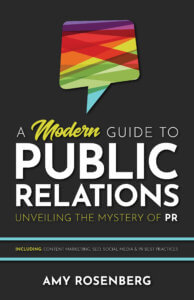Jargon, Slang, Vernacular, Lingo, Definitions…whatever you want to call it
In any industry there are special words, expressions and phrases that are used within it. Many of these words have particular meanings that may be difficult for outsiders to understand. While writing “A Modern Guide to Public Relations” I created a dictionary. However, it ended up being too cumbersome to use in the book but we still thought it would be fun to share it with you!
Orphans: Singular words on a paragraph line. Similarly “widows” are a singular word at the top of a page. You want to avoid both. They are solo words from a first line that travel over onto a new line to sit all by their lonesome.

Beat: The particular area of interest a reporter covers for an outlet. Examples could be as broad as health, businesses and lifestyle; or lean toward such minutiae as the cannabis industry, dog-friendly activities and aerospace mechanics.
B-Roll: Secondary (hence B) video footage that can be sent and used by media to accompany a story.
Community Rags: Another name for local or community newspapers.
Copy: Words.
Drop-dead: This is your last-minute deadline, like really really this is the deadline, no, it really is, like your chances really will end, I am not kidding around, seriously dudes.
Earned Media: Media coverage that is not bought. PR coverage is often called earned media because you cannot buy it, you have to “earn” it through hard work or reputation, therefore it has more credibility.
Morning meeting: The most important thing to know about TV. Explained in the book.
Op-Ed: Short for “opposite the editorial page,” as these opinion pieces are usually printed on the opposite page of the editorial section where newspaper editors rant about issues.
Owned Media: Media that you produce yourself, so you own it. Blog posts, videos, podcasts, magazines and even entire online media rooms are examples of owned media.
Paid Media: Advertising or any other form of media that is purchased. TV spots, billboards, paid contributed articles, advertorials, Google ads, social media ads are all types of paid media.
Persona: Your target, whether it is press or your ultimate audience like a consumer or business decision-maker. It’s the person you mockup in your head via brainstorming or research that you ultimately need to sway. The term is mainly used in content marketing social media circles.
Police Scanner: A tool the media uses to listen in on conversations among local police so they can also be aware of emergencies. However, now they typically rely on Twitter for this.
PSA: Public Service Announcement.
Put the issue to bed: You’re done. The issue has gone off to the printer. No, they can’t get your pitch in now no matter how much you toss your hair and bat your eyes.
Rolodex: An ancient form of contact management, depicted as a manual card catalog of contacts.
Sound-bite: Quick, important bit of words that your press representative says, typically used for radio and television.
Spot: This is an old-school advertising term that means commercial. Many accidentally use the word in reference to earned media TV segments garnered without paying the outlet — unknowingly belittling the accomplishment. Anyone can get a “spot” with a little money.
Talking heads: People who are just talking in an interview on TV or at an event. Listening to someone drone on and on is typically boring for press — and many of us — hence the negative connotation of “talking heads.”
Voice Over: When a media member provides comment to accompany on-air photo or video footage.
The Wire: The Wire is like a PR distribution service, but for journalists. Stories that run on wires like the Associated Press (AP) or Reuters are syndicated — meaning a media outlet can republish one of the syndicated stories rather than assigning a reporter to cover it.
Since today we finally submitted the “A Modern Guide to Public Relations” to Amazon — we thought that taking this huge step and leap of faith today, January 20th, the date that everyone has been waiting for, would be very meaningful to us — I am tired.
However, odd sayings and definitions abound in PR and by now I am mentally unable to rewrite what is already in the book. Therefore, if you have further questions about additional gems like: ghostwriting, bylined articles, SEO PR, and everything else under the traditional and digital PR umbrella, the book should be available on Amazon in a few days. Yay.










